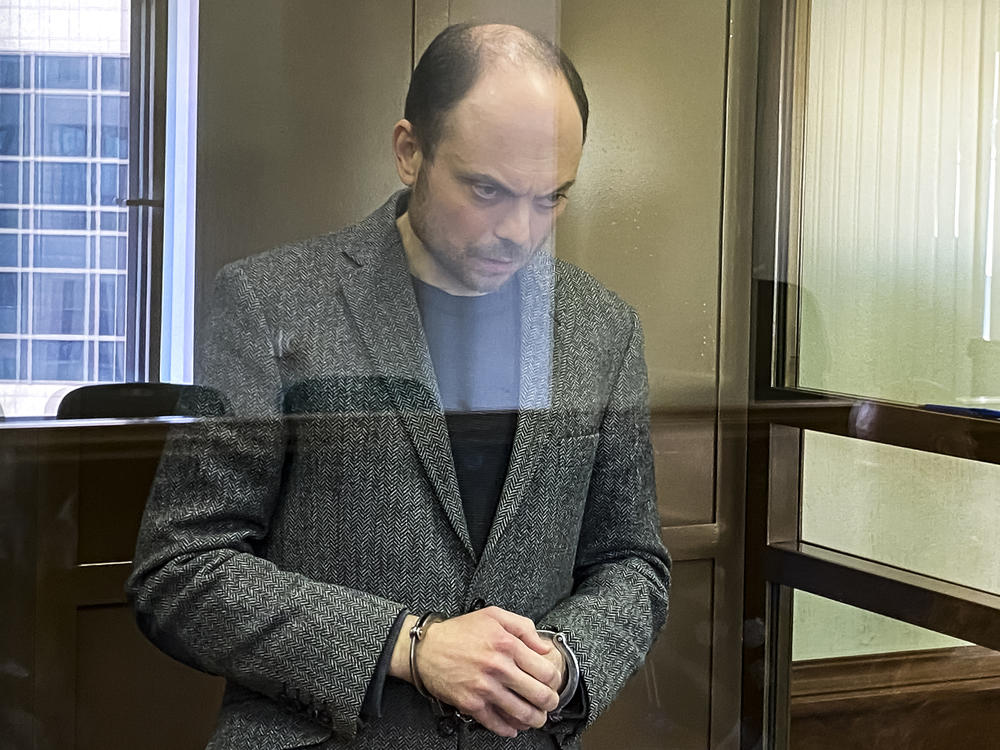Section Branding
Header Content
Opinion: The highest duty of a citizen
Primary Content
There were echoes from history this week as a Russian court sentenced Vladimir Kara-Murza Jr. to 25 years in prison.
Mr. Kara-Murza, a journalist and opposition leader, was convicted of treason for giving speeches that denounced Russia's invasion of Ukraine.
"Not only do I not repent of any of this, I am proud of it," he told the court. "I support every word that I have spoken and every word of which I have been accused..."
His words may remind us of when Mahatma Gandhi was convicted of defying the law with his policy of peaceful non-cooperation with British rule in 1922. He told a judge he would "submit cheerfully to the highest penalty that can be inflicted upon me for what in law is a deliberate crime and what appears to me to be the highest duty of a citizen."
Or when Nelson Mandela was convicted of inciting a strike against South Africa's regime in 1964 to defy apartheid, and told a court in Pretoria, "It is an ideal which I hope to live for and to achieve. But if needs be, it is an ideal for which I am prepared to die."
Vladimir Kara-Murza told his court this week, "I know the verdict. I knew it a year ago when I saw people in black uniforms and black masks running after my car in the rearview mirror. Such is the price for speaking up in Russia today."
Vladimir Kara-Murza is 41. He is married to Evgenia Kara-Murza; they have 3 children. His family and human right groups worry about whether he will survive if he is sentenced, as the Russian prosecution has asked, to a maximum-security prison that would be far from the scrutiny of the world.
The world rings with concern for him this week. But what about next week? Next year? Or five and ten years?
Mahatma Gandhi and Nelson Mandela survived their sentences to see their countries, and the world, changed by their work and words. But many more political prisoners have not, including Stephen Biko, the anti-apartheid activist beaten to death in custody by South African security officers in 1977; or Dzhemil Gafarov, a Crimean Tatar activist who died in Russian custody this February; and others whose names can be lost in the swirl of history.
Yet Vladimir Kara-Murza told his court from the defendant's cage in which he heard the verdict delivered against him, "Even today, even in the darkness surrounding us, even sitting in this cage, I love my country and believe in our people."
Copyright 2023 NPR. To see more, visit https://www.npr.org.

